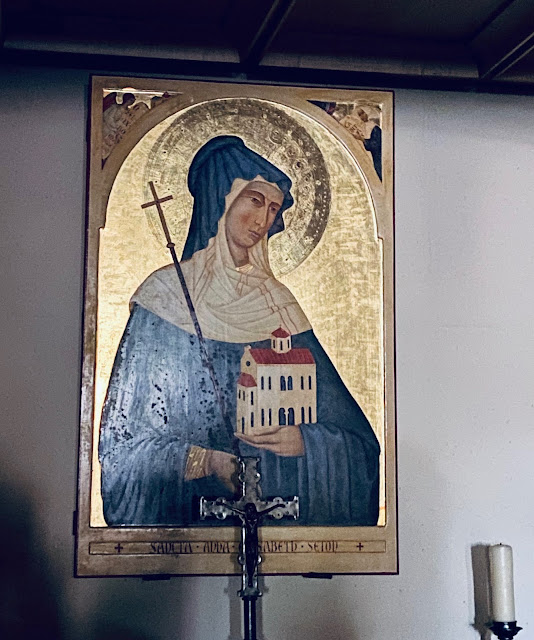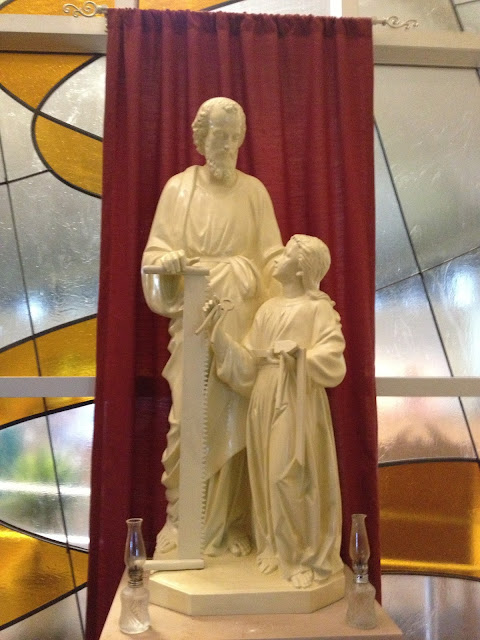As I look over the course of my life, it’s unmistakable how I’ve been blessed by the example and presence of people I can only describe as holy. These every day saints have graced my spirit and shaped my life.
There’s my grandmother Josefita, offering prayers for the needy nightly as she prayed the rosary. Kneeling in front of her life-size statue of St. Ann and Mary, I could hear her soft voice down the hall, “Dios te salve María, llena eres de gracia, el Señor es contigo…”
My heart carries tenderly my friend Pat who walked the Camino de Santiago pilgrimage with me. Although she died of brain cancer eight years ago, there are many “Pat-isms” that I remember regularly. Perhaps dearest of all, I miss hearing the way she proclaimed “amen” with her whole being every time she received the Eucharist.
But there are other holy people whom I have never met who have been lights in my faith journey. Declared saints by the universal Church, these holy ones are also members of my go-to “Saints Posse.”
For example, Teresa of Ávila and her well-known phrase, “Solo Dios basta, God alone suffices,” part of a poem that has been with me since my youth:
“Let nothing disturb you, let nothing frighten you. All things pass away, God never changes. Patience obtains all things. He who has God lacks nothing. God alone suffices.”
Praying with Pat in the visitor’s room at Teresa’s Carmel, the place where Teresa and John of the Cross prayed together, remains one of those heaven-on-earth pivotal moments of my life. Yes, solo Dios basta!
Perhaps the most surprising member of my personal Saint Posse is Blessed Stanley Rother, the subject of one of my biographies.
That a priest from Okarche, Oklahoma, martyred in Guatemala, could bond with a refugee mother of four and grandmother of 13 from Pinar del Río, Cuba, is truly God’s sense of humor!
Blessed Stan was martyred in his rectory in Santiago Atitlán 40 years ago this July 28, a servant of Love who chose to remain with his suffering parishioners during Guatemala’s civil war. But it’s how America’s first martyr lived his life that inspires me.
If anyone can model a call to holiness in the midst of our very ordinary lives it is the farmer from Okarche who humbly served his people as a parish priest. And he would tell us that it all begins with our willingness to say, “yes,” to whatever – and whomever -- God places in front of us.
I need saints.
They connect me to others, across time and geography—and constantly remind me that I’m not alone. I have a cloud of witnesses that, like me, long for God.
And their passionate pleading on my behalf is akin to the mother I met years ago whose son was on death row. When the Governor of Texas refused to see her in person to hear her plea for a stay of his execution, she set up a tent across the street from the Governor’s mansion and invited the local press, the bishop, and anyone who would listen, to join her in prayer and in peaceful demonstration. Who doesn’t need this sort of passionate intercession?
Saints understand just how difficult it can be to seek holiness, to live for God. They are saints because they never gave up trying, and they show me the way.
+ + +
This column was first published in the July-August issue of Liguorian Magazine, as the regular column, “Just Live It”

















































